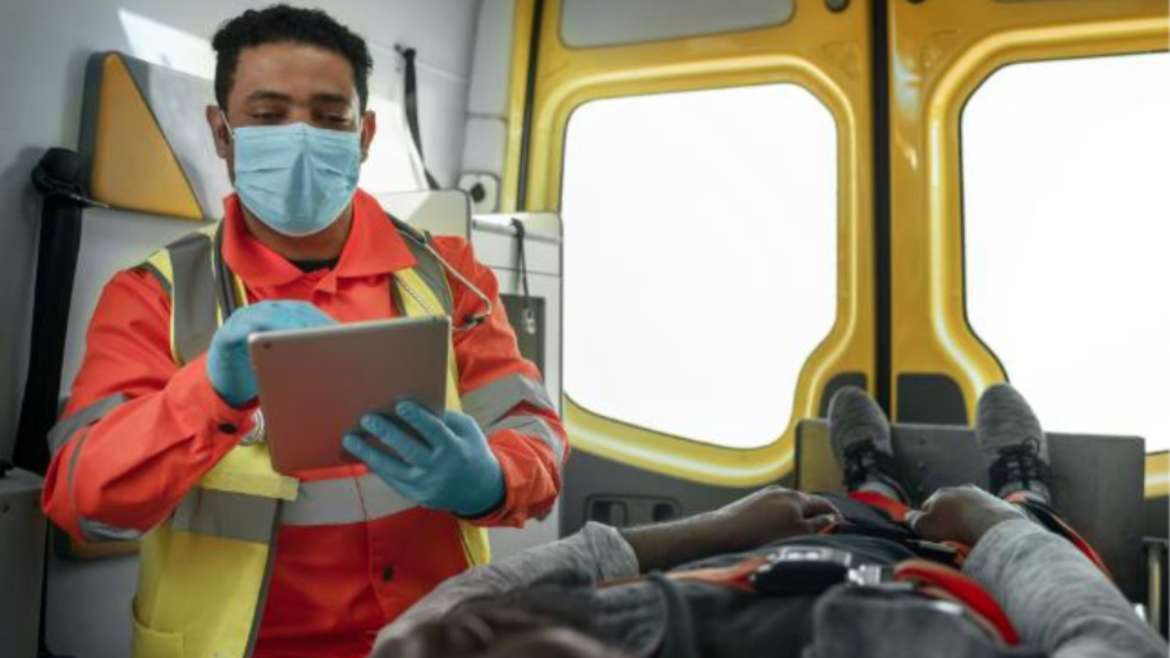Working in a safety‑critical role on Network Rail is a responsibility that demands the highest standards of health and fitness. Ensuring that individuals meet medical and regulatory requirements is essential not only for personal safety but also for the safety of colleagues, passengers, and the wider public. Safety critical medical Network Rail assessments are designed to evaluate whether candidates are fit to work in these high-risk environments.
This guide provides detailed insights into the requirements, process, and implications of these medicals, helping candidates understand what they need to do to comply with railway medical standards.
What Is Safety‑Critical Medicals on Network Rail?
Safety critical medicals are formal medical assessments required for anyone performing roles on or near the railway where lapses in fitness or health could result in serious injury or accidents. These roles include train drivers, signallers, track workers, and other operational staff whose duties directly affect railway safety.
The primary aim of these medicals is to ensure that all personnel are physically and mentally fit to perform their duties without putting themselves or others at risk.
Why Medical Fitness Is Essential
Medical fitness in railway roles is crucial because:
- Preventing accidents: Poor health or undiagnosed conditions can compromise reaction times, decision-making, and overall performance.
- Regulatory compliance: Network Rail and the Office of Rail and Road (ORR) set strict standards for occupational health.
- Long-term safety: Maintaining a workforce that meets medical standards reduces incidents and enhances operational reliability.
By meeting safety critical medical standards, candidates help ensure the overall safety and efficiency of railway operations.
Key Railway Medical Standards
Network Rail follows strict railway medical standards based on guidance from the Rail Safety and Standards Board (RSSB). Some key areas evaluated include:
- Vision and Hearing
- Adequate visual acuity is critical for signalling, monitoring, and reading instruments.
- Hearing assessments ensure employees can detect alarms, train horns, and communication devices.
- Cardiovascular and Respiratory Health
- Candidates must have stable heart and lung function.
- Conditions like uncontrolled hypertension or severe respiratory illness may be disqualifying.
- Neurological and Musculoskeletal Fitness
- Ensures safe operation of trains, machinery, and manual handling tasks.
- Disorders causing dizziness, seizures, or mobility restrictions are evaluated carefully.
- Mental Health and Cognitive Ability
- Assessments include evaluating stress management, attention, and memory.
- Mental health conditions must be stable and under control to meet safety-critical criteria.
- Lifestyle and General Health
- Conditions such as diabetes or epilepsy are reviewed for control and impact on safety.
- Substance misuse can lead to disqualification or additional monitoring.
Occupational Health Assessment
The occupational health assessment is a central component of safety critical medical Network Rail procedures. This involves:
- Comprehensive medical history: Including previous illnesses, surgeries, and current medications.
- Physical examination: Checking cardiovascular, musculoskeletal, and neurological function.
- Laboratory tests: Blood tests, vision, hearing, and sometimes ECGs to detect hidden risks.
- Functional assessments: Ability to perform job-specific tasks safely under normal and emergency conditions.
Occupational health professionals use these assessments to provide recommendations or restrictions to Network Rail regarding medical fitness.
Regulatory Compliance
Compliance with railway medical standards is not optional. Employers are legally obligated to ensure employees in safety-critical roles meet medical requirements. Failure to comply can result in:
- Suspension or removal from the role
- Legal liability in case of accidents
- Impact on overall railway safety reputation
Candidates must understand that medical assessments are part of wider regulatory obligations, including Health and Safety at Work Act, and Network Rail Safety Management System (SMS) requirements.
Preparing for a Safety Critical Medical
Preparation is key to passing the safety critical medical. Candidates should:
- Review the standards: Familiarize yourself with Network Rail medical requirements.
- Address health concerns: Consult your GP about any chronic conditions or medications.
- Maintain lifestyle health: Regular exercise, healthy diet, and adequate sleep improve assessment outcomes.
- Bring documentation: Previous medical records, prescriptions, and reports can aid assessment.
Proper preparation reduces stress and increases the likelihood of passing the medical on the first attempt.
Common Disqualifying Conditions
Some conditions may impact eligibility for safety critical roles, including:
- Severe vision impairment not corrected by lenses
- Uncontrolled diabetes or epilepsy
- Severe psychiatric disorders affecting decision-making
- Substance dependency affecting performance or reliability
- Cardiovascular conditions with significant risk of sudden incapacitation
Each case is assessed individually, and some conditions may require monitoring or specific adjustments rather than automatic disqualification.
Conclusion
Safety critical medical Network Rail assessments are a vital component of railway safety. They ensure that every individual in high-risk roles is physically and mentally fit to carry out their duties. By understanding railway medical standards, preparing appropriately, and complying with occupational health and regulatory requirements, candidates increase their chances of successfully passing the assessment and contributing to a safer railway network.
Passing the medical is not only a personal achievement but a responsibility to colleagues, passengers, and the wider community. Ensuring medical fitness in railway roles safeguards lives and strengthens the integrity and reliability of the UK rail system.
Contact us today to learn more about safety critical medical Network Rail requirements and get guidance for a successful assessment.
FAQ
How often do I need a safety critical medical on Network Rail?
Most roles require an initial medical before starting and periodic renewals, typically every 2-5 years, depending on the role and age.
Can I appeal if I fail the medical?
Yes, Network Rail allows appeals or reassessments, often requiring additional medical evidence from your doctor or specialist.
Are mental health conditions automatically disqualifying?
No, stable and well-managed mental health conditions are assessed on a case-by-case basis.
What happens if I develop a medical condition while employed?
You must report it immediately. Occupational health will evaluate whether your role can continue safely or if adjustments are needed.
Is the assessment expensive for candidates?
Typically, the employer covers the cost as part of employment requirements.



